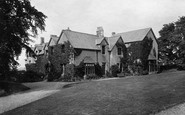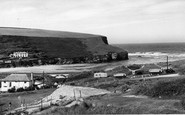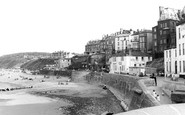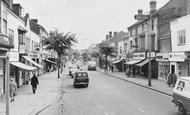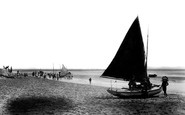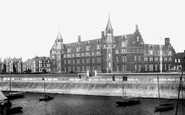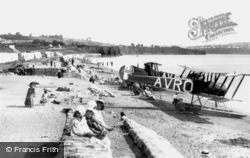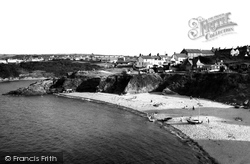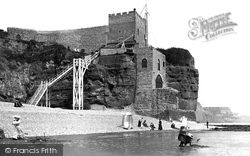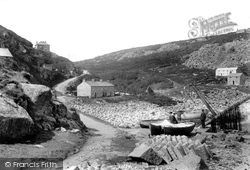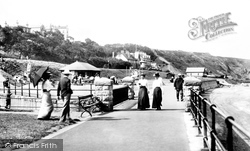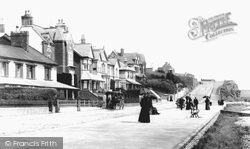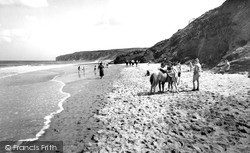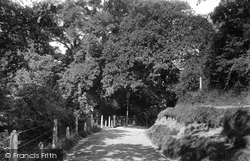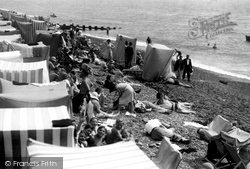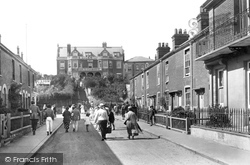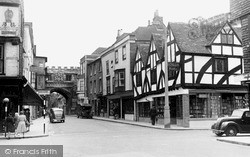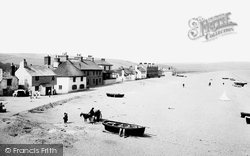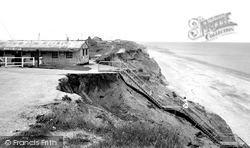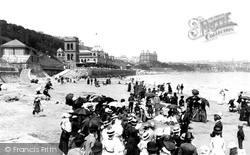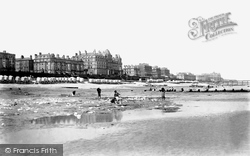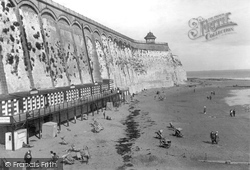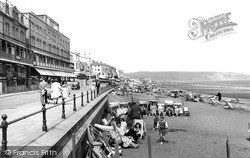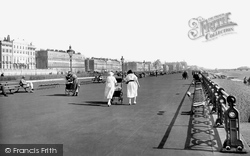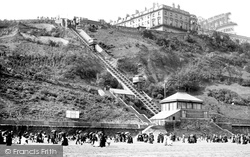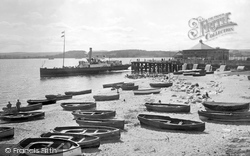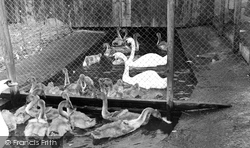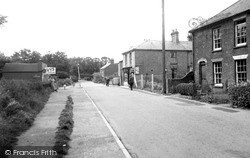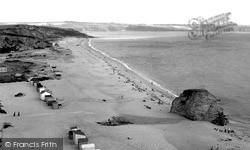Places
12 places found.
Those places high-lighted have photos. All locations may have maps, books and memories.
Photos
191 photos found. Showing results 521 to 191.
Maps
115 maps found.
Books
1 books found. Showing results 625 to 1.
Memories
1,374 memories found. Showing results 261 to 270.
Chiswick Memories
My parents were both brought up in the Chiswick/Bedford Park/South Acton area. I was born in 1935 and spent my early years living on the Great West Road near to the Gillette factory. During WWII I spent much time visiting my ...Read more
A memory of Acton by
Chope Road
I am looking for some historical images from my house on Chope Road. It is currently called Sundene and was built in 1920 as one large house, now separated into two. My understanding is that the house owned a lot of land, which is now Tudor ...Read more
A memory of Northam
Circus At The Village Hall C 1955
We lived in the village pub The Lifeboat Inn. I remember being flooded and all the beer barrels floating in the cellar, mum cooking mussels given in lieu of beer, which were left in the bath and climbed up the ...Read more
A memory of Brancaster in 1955 by
Coastguard Cottages Mawgan Porth
The old coastguard cottages at Mawgan Porth were leased by Mrs Kate Knight and her youngest daughter Winifred in about 1920 from Col Williams of Carnanton at St Mawgan. They ran a tearoom and let two of the ...Read more
A memory of Mawgan Porth by
Coastguard Lookout.
At the top right hand corner of this picture was the coastguard lookout where my father was stationed. As kids we were only allowed to swim on our own if we stayed on the beach below the lookout. I loved going to visit him "on watch" ...Read more
A memory of Cromer
Colwyn Bay Drinking Fountains
The Dingle was indeed a magical place and as a child on holiday in the 1950's, I always chose to go to the beach via The Dingle. I have a photograph of myself and my brother taken by the drinking fountain that was just ...Read more
A memory of Colwyn Bay by
Coming Back Home
I came back to brierley bonk in 1966, complete with surfboard, after leaving BH in 1961 ,with my parents for Australia, to start a new life ?,well when i got back the place haden't really changed, Except me.I had left behind ...Read more
A memory of Brierley Hill in 1966 by
Completely Changed!!
My father took my mother and I on holiday to Woolacombe every year in the 1950's. At that time, in the height of the Summer months we would be the only family on the main beach (as well as the Barracane Beach where we searched ...Read more
A memory of Woolacombe in 1950 by
Connah''s Quay Power Station And The Salt Marsh Reclamation Project
DOES ANYONE KNOW WHERE ALL THE SAND AT PARKGATE AND HESWALL WENT TO? and does anyone have any memories of how the Salt Marsh has changed since the first land/salt marsh reclamation ...Read more
A memory of Parkgate in 1950
Connvalescent Home
When I was about 2 I was very ill and after leaving the Children's Hospital I went to a convalescent home in Southport. I have very little memory of this.. I was told it was a Catholic home. My mother was very worried. When she ...Read more
A memory of Southport in 1950
Captions
1,131 captions found. Showing results 625 to 648.
Seaplanes from the newly-formed Royal Air Force are pulled up on the beach - perhaps being used either for recruitment or anti-submarine duties.
The beach was used once a year by farmers from Llechryd for a feast.
At the foot of the ladder today, there is a short promenade with beach huts.
The walk along the fern-fringed lane to the rocky beach is unforgettable. The Newlyn artists were enthusiastic visitors here.
Its picturesque position on the cliffs of one of the noblest bays on the east coast of England, and its fine beach, along with its splendid hotels and handsome private houses, make Filey one of the most
Its own beach is sandless and full of large pebbles, which seem to sing as the tides play across them. It gets its name from the salterns, or salt pans, used by the monks of nearby Otterton Priory.
Situated at the southern end of Filey's long beach, the outcrop of Flamborough Head can be seen in the distance.
Such were the number of visitors navigating the overgrown and makeshift route from the town centre to the beach that the Windsor estate prioritised the construction of a more permanent path.
Its own beach is sandless and full of large pebbles, which seem to sing as the tides play across them.
There are plenty of changing tents on this beach, where a group of boys wave at the camera (centre foreground).
In this picture, guests are returning from the beach and are processing up to the hotel in order to get changed in time for their evening meal, which was often accompanied by soothing live music.
Street furniture is changing with the introduction of the ugly concrete street lamp post outside the timber-framed building that was Beach's bookshop.
More Americans died training here than were killed on Utah Beach on D-Day.
Here a lady can be seen trying to coax a child down the steps to the beach.
One Victorian dress would provide enough material for a dozen or more outfits today, when bikinis rule the beach.
The edge of the beach is lined with bathing machines in this view.
It was more popular with the locals, because it was away from the main beach. The prominent building on the cliff was part of Victoria Gardens.
These days, happily, the only active defences to be found at the resort are sand castles on the beach.
It deliberately provided fewer mass entertainment facilities than Brighton, which presumably accounts for the nearly deserted promenade and beach we see in this picture.
The tramway offered holiday-makers an alternative means of escape from the beach to the Esplanade, other than by the 224 steps cutting through the Spa Gardens, and all for just 1d.
A steamer sets out from Exmouth Pier, watched by boatmen on the nearby beach.
The Fleet, a strip of brackish water between the Chesil Beach and the shoreline, gives a safe haven to all kinds of wetland fowl, including at one time a stray flamingo.
This view is from the beach towards the village. The road was developed in the Victorian period, and most of the houses and shops, like those on the right, are of that date.
As at Par, the Crinnis Beach is also largely a result of the deposition of waste from the mining and china clay industries.
Places (12)
Photos (191)
Memories (1374)
Books (1)
Maps (115)



